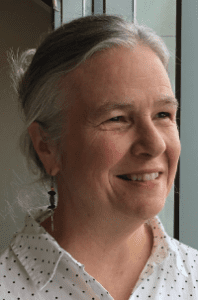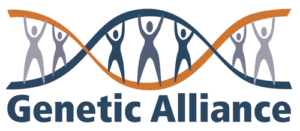
We recently spoke with Sharon Terry, MA, the President and CEO of Genetic Alliance, an enterprise that works to provide programs, products, and tools for people to take charge of their health and to further biomedical research. As part of these efforts, Genetic Alliance recently launched the iHope Genetic Health program to eliminate the barriers to genomic insights for tens of thousands of individuals across the globe each year. Ms. Terry provided information on the iHope program and some of the goals it hopes to achieve.
- Why did the Genetic Alliance launch the iHope Initiative and why is it needed?
Since Genetic Alliance was founded in 1986, we have created novel ways of meeting the needs of individuals, communities, and families who suffer from genetic conditions. A natural expansion and culmination of these years of dedication to innovative ways to accelerate better health is to apply the most advanced and relevant technologies to those most in need. For this reason, Genetic Alliance launched the iHope Genetic Health program to diagnose the world’s undiagnosed in low to middle-income countries and communities. As the World Health Organization, the American Society of Human Genetics, and so many others call for equity, we have a practical solution. - How will Genetic Alliance partner with pharmaceutical, technology companies and care providers to undertake the Initiative? Given that the project focuses on the needs of individuals and families, how do you reach them?
Genetic Alliance is delighted to receive a $120M donation of instruments and reagents from Illumina to distribute over the next five years to increase capacity throughout the globe to diagnose those who experience the so-called diagnostic odyssey. We have also been named a recipient of Amazon Web Services Health Equity Program and receive cloud storage from them. Luna is donating their patient engagement, study, and data sharing platform for the families to manage their data. Reaching communities, families, and individuals around the world is what Genetic Alliance does very well. We have phenomenal reach and many partner organizations in patient communities, professional societies, and networks that have been supported by the National Institutes of Health and the Gates Foundation, to name a few.  How does the iHope Initiative ensure equitable access to research opportunities and the benefits of therapies? Have there been disparities in access to diagnostic technologies?
How does the iHope Initiative ensure equitable access to research opportunities and the benefits of therapies? Have there been disparities in access to diagnostic technologies?
The disparities related to diagnostics have been phenomenal. Even in a country like the US, individuals who are not in high-income communities do not receive the same access to care. This is, even more, the case in low to middle-income countries. While we hoped that genome technologies would make access to care more affordable and accessible, this has not happened. iHope Genetic Health will bring rapid diagnosis to the masses. We will offer free cWGS to diagnose individuals much faster. We will also make sure we follow up the testing and connect the individual to available treatments, clinical trials, and research. Because of our partnership with Luna, we can recontact anyone anonymously and offer them ways to get the services they need. We have a number of partnerships with biotech and pharma companies and invite more, so that we can coordinate access to care and accelerate research. The data resulting from tens of thousands of individuals participating will result in the largest diverse patient-controlled repository of genomes, clinical information, and patient-reported outcomes in the world. All researchers are welcome! All partners are welcome!- How has this project been undertaken and who is currently participating in it?
Currently, the partners mentioned above are participating. In addition, we will have a whole series of announcements this fall about more partners. We are looking for laboratories across the world who are either capable of offering clinical whole genome sequencing or who are ready to move to offer it. We are also looking for funders who understand the importance of this offering – and these can be individuals, foundations, or companies and be dedicated to a region or country, or globe. We are also interested in other technologies that will be needed to bring labs to the applicable standards for cWGS.
